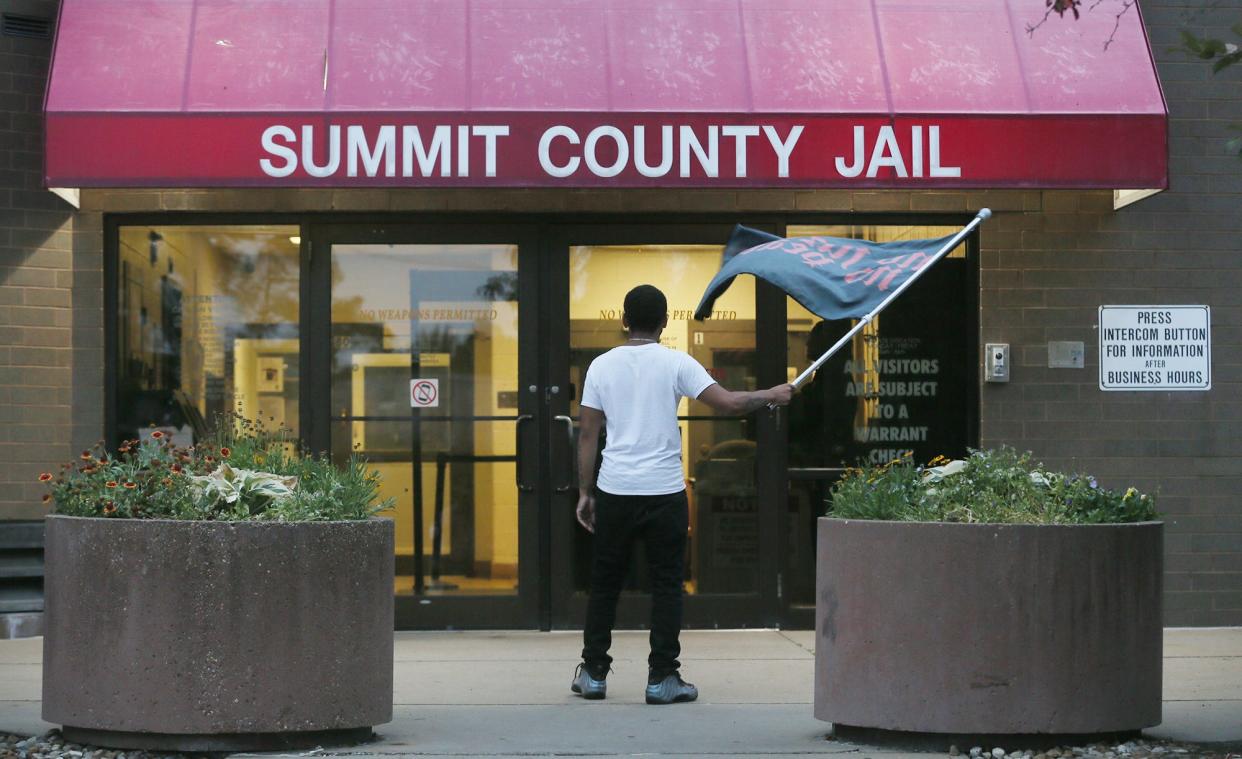Ohio State Bar Foundation awards more than $91,000 in grants for racial justice projects

Black community leaders and law enforcement agencies in four Northeast Ohio counties will soon work together to review and revise existing police training procedures as part of initiatives funded by grants through the Ohio State Bar Foundation.
The foundation, which began awarding grants in 2020 for organizations leading racial justice projects, announced this week a new wave of $91,042 in funding for two organizations, including for the Kent State University Foundation to spearhead the police reform effort.
The grant for $49,642 will fund the first year of a multi-year project in which community forums will be held to evaluate and change existing police training in areas related to diversity and equity through the Kent State Basic Police Officer Training Academy, a regional training provider for the Ohio Peace Officer Training Academy (OPOTA). Called "Leveraging Community Voices to Advance Racial Equity in Police Training," the program is intended to increase the competency of cadets as well as to develop their communication skills during interactions with Black community members.
"The Ohio State Bar Foundation’s funding allows us to do timely work to address racial inequities by working directly with our police academy," according to a written statement from the Kent State University Foundation. "The OSBF funding will support the community dialogues as well as research into the impact of curricular changes on our police academy cadets."
The announcement comes amid days of outcry, protests and clashes in Akron after 25-year-old Jayland Walker, a Black man, was shot and killed by Akron police following a traffic stop and vehicle pursuit. Summit County, where Akron is located, is among the four Ohio counties (the others are Portage, Mahoning and Columbiana counties) that will be served by the police reform project.
Shooting death of Jayland Walker: State, local investigations of Akron police shooting could take a year
Though the application process for this round of grant funding took place well before the fatal shooting, the reaction to Walker's death underscores the ongoing importance of rebuilding trust between police and residents, said Lori Keating, executive director of the Ohio State Bar Foundation.
“The first and most important step was the conversation between the Black community and law enforcement agencies, and that seemed like a dialogue we’d be willing to fund,” Keating said. “This grant, like all of our grants, really reaffirms that we still need to take a critical look at our justice system and how it works, and how we can improve it.”
In addition, the Mental Health & Addiction Advocacy Coalition, a nonprofit organization that advocates for adequate financial and political support for mental health and addiction treatment, received $41,400 from the Ohio State Bar Foundation. The grant will fund research to either confirm or refute the existence of racial and ethnic inequalities in the state’s community behavioral health system.
The project’s focus will be on collecting and analyzing data in order for researchers to make recommendations to improve data collection in such a way as to eliminate any identified disparities that result in inequitable outcomes for minority populations, said Joan Englund, executive director of the Mental Health & Addiction Advocacy Coalition, which has regional hubs in Cleveland and Cincinnati, as well as a state office in Columbus. Partnering organizations include Central State University, Multiethnic Advocates for Cultural Competence, and Ohio University.
“Making a conscious commitment to racial and ethnic equity in behavioral health is critical to addressing the systemic racism in the health care system as a whole as well as other tangential systems such as the criminal justice system and decreasing the disproportionate representation of BIPOC (Black, Indigenous, and people of color) communities,” Englund said in a written statement.
The Ohio State Bar Foundation established the grant program, known as the Racial Justice Initiative, in response to the protests that broke out in the summer of 2020 across the nation after the murder of George Floyd.
“We looked at the current conversation around us in 2020 and we wanted to be a part of that conversation,” Keating said. “We wanted to address injustices that are happening to the best of our ability.”
Past coverage: Ohio State Bar Foundation donates $500,000 to advance racial justice
The initial intent was for the Ohio State Bar Foundation to eventually provide grant funding totaling $500,000 to support various projects across the state addressing systemic racism. However, the nonprofit organization has so far awarded more than $350,000, and Keating said that the foundation's board has approved awarding another $300,000.
Among the programs that have been funded are the University of Cincinnati College of Law’s Ohio Innocence Project, Case Western Reserve University’s School of Law Racial Justice Fellowships and the Kirwan Institute’s Opportunity Map for Inclusion.
The initiative also provided a $50,000 grant to the Innovation Ohio Education Fund’s Justice Agenda for Black Women and Girls in Ohio. That project is intended to examine how systemic racism within the criminal justice system impacts Black women and girls in order to identify legislative solutions.
Organizations across the state are encouraged to apply by Sept. 2, 2022 for the next round of funding. More information can be found at osbf.org/racialjustice. The foundation is also hosting a virtual grants info session at 3 p.m. on Wednesday, and those interested can register here.
Eric Lagatta is a reporter at the Columbus Dispatch covering social justice issues and non-profits. Reach him at elagatta@dispatch.com. Follow him on Twitter @EricLagatta.
This article originally appeared on The Columbus Dispatch: Police training in 4 NE Ohio counties to be reviewed as part of grants

